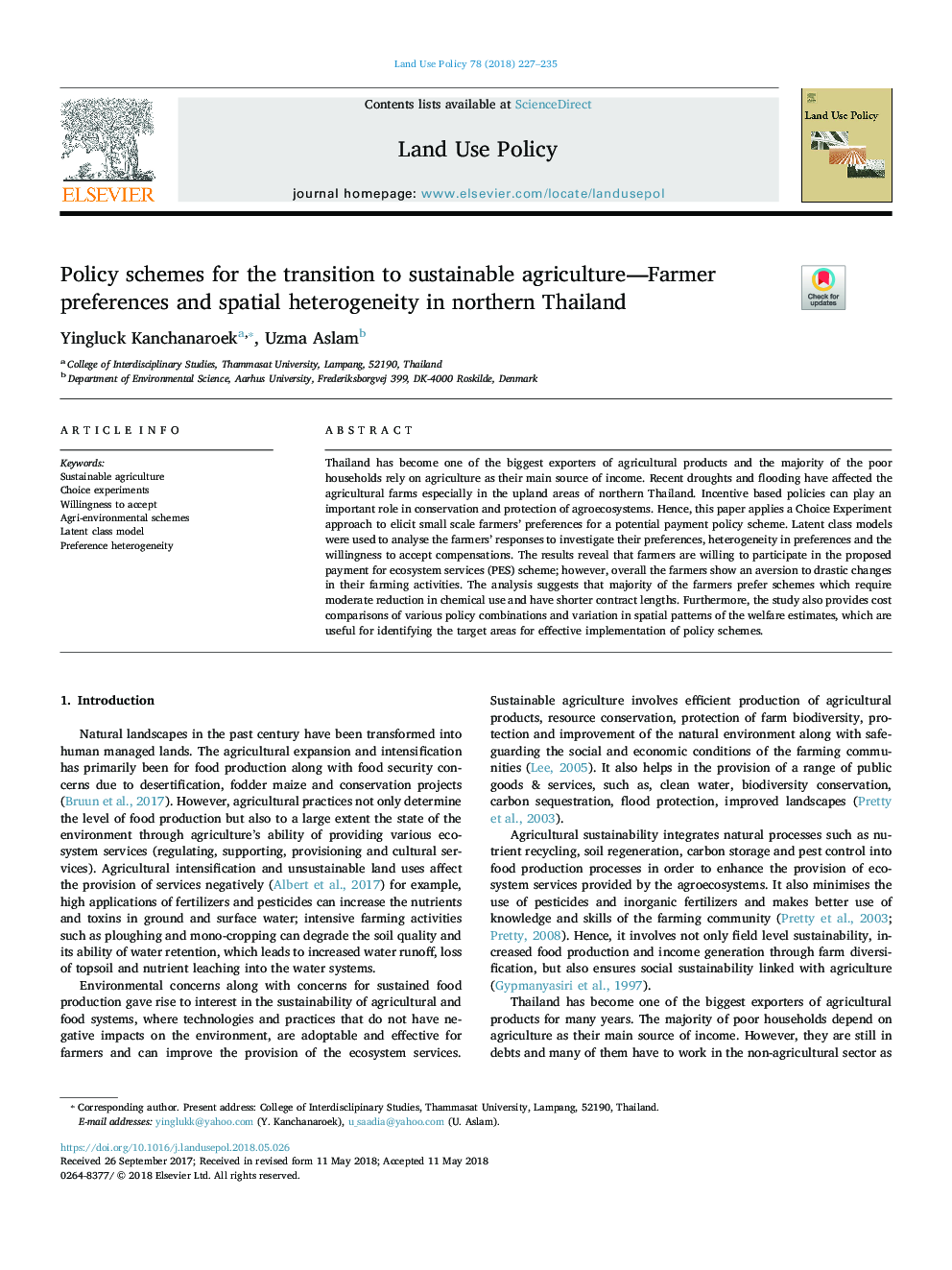| Article ID | Journal | Published Year | Pages | File Type |
|---|---|---|---|---|
| 6546026 | Land Use Policy | 2018 | 9 Pages |
Abstract
Thailand has become one of the biggest exporters of agricultural products and the majority of the poor households rely on agriculture as their main source of income. Recent droughts and flooding have affected the agricultural farms especially in the upland areas of northern Thailand. Incentive based policies can play an important role in conservation and protection of agroecosystems. Hence, this paper applies a Choice Experiment approach to elicit small scale farmers' preferences for a potential payment policy scheme. Latent class models were used to analyse the farmers' responses to investigate their preferences, heterogeneity in preferences and the willingness to accept compensations. The results reveal that farmers are willing to participate in the proposed payment for ecosystem services (PES) scheme; however, overall the farmers show an aversion to drastic changes in their farming activities. The analysis suggests that majority of the farmers prefer schemes which require moderate reduction in chemical use and have shorter contract lengths. Furthermore, the study also provides cost comparisons of various policy combinations and variation in spatial patterns of the welfare estimates, which are useful for identifying the target areas for effective implementation of policy schemes.
Keywords
Related Topics
Life Sciences
Agricultural and Biological Sciences
Forestry
Authors
Yingluck Kanchanaroek, Uzma Aslam,
